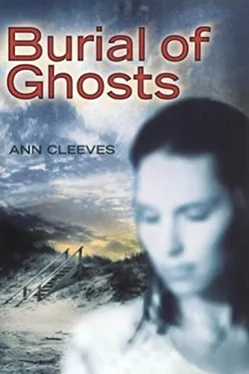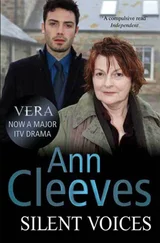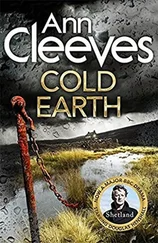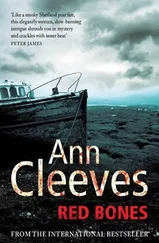If there’s a knife in the scene I focus in on it immediately. It’s like I’m filming. The knife appears in close-up. Lovingly, seductively. Sometimes I think I stabbed the lad in Blyth with a knife, but I know that’s not right. In Blyth it was scissors.
We all have fantasies, don’t we? My first fantasies were about my mother coming to the kids’ home to find me. Then about sex. Now they’re about knives. Lisa asks if I think about cutting myself and I say no. In my dreams other people do the cutting. Or I cut them.
So, there’s this one flashback. I’m in the secure unit where I worked when I left college. The kids are fraught and jumpy. It seems as if it’s been raining for weeks and they can’t get out. So I say suddenly, a brainwave, ‘Right, we’ll do some cooking.’ Because that’s a new activity for them, and they’re bored out of their brains locked up in that place.
Do I ask permission? No. I’m the senior social worker on duty. Who would I ask?
The kitchen’s empty. The cook takes a break after the lunchtime rush. It’s early afternoon but outside it’s nearly dark and the scene is lit by very white strip-lights. Everything is so clean it gleams. There’s a lot of stainless steel, throwing back blurred reflections: a big central table with a shelf underneath for pans. An oven, industrial-sized. And knives. They’re kept at the back of a drawer, away from prying eyes, though the kitchen is usually out of bounds to the children.
Zoom in on the knives. There are four of them with yellow plastic handles. All wedge-shaped, but different sizes.
I don’t take them from the drawer. Naïve, I might be, but I’m not that daft. I find flour in a stainless-steel drum in the larder and some sachets of dried yeast, and we make bread. Kneading the dough on the table, the kids are calmer than they’ve been for days. I congratulate myself. I really think I’m good at this job. I imagine that in a few years I could be running the unit, taking decisions, planning policy.
I show the kids how to form the mixture into rolls, by circling it between floured palms like Jess taught me. It’s a positive decision to make rolls not loaves. They’ll be quicker to cook and these are seriously disturbed children with a low boredom threshold. But it’s also because I want the kids to taste their baking. You have to cut a loaf and there’s one boy at least I wouldn’t trust around a bread knife. So I wasn’t thoughtless or reckless. That charge was laid against me, but I tell myself it’s not true.
Zoom in on the drawer again. There are only three knives left.
Ray gave me a lift to Wintrylaw. Jess organized it.
‘He’s got a job towards there anyway,’ she said, though I didn’t believe her. ‘Just give him a call on his mobile when you need to get back.’
He had a creased Ordnance Survey map, but we got lost. The church was next to a big house, a couple of miles out of the village. I could tell that much by the map, but not how to get there. I was supposed to be navigating, but the wiggly lines didn’t make much sense. I couldn’t tell the footpaths from the unadopted roads. In the end Ray pulled over into the side of a lane.
‘You might just as well get out here,’ he said. ‘I don’t think I can get much further. This is it, according to the map, like.’
He was anxious, apologetic, knowing he’d get knacked by Jess for not delivering me all the way. But I was glad to escape.
The ditches were full and the hawthorn hedges grown into crazy shapes and covered with blossom. There were two pillars smeared with lichen, the edges of each stone worn smooth by the wind, like boulders on a beach. No gate. A grass track leading through the trees, the leaves Granny Smith green, shimmering silver occasionally when turned by the breeze. On the floor white, star-shaped flowers and overblown bluebells, the vivid colours of a Moroccan rug. The sun was behind me and threw my shadow, lengthened slightly, onto the track. I took a breath and stepped between the pillars.
Of course I knew this couldn’t be the right way into the Wintrylaw estate. No cars had ever gone down this track. Perhaps once there had been phaetons, strangers on dark horses, children in donkey carts, but no cars. The track turned and below me I saw the house. The crumbling stone gleamed in the morning sunshine. I was looking down on the roof, could see the moss growing in the gutters and the grass between the slates. For a moment I believed I could see into the great chimneys to the hearths and the stoves below. I imagined high ceilings and ornate furniture.
Beyond the house the main drive swept away into the distance, and there was a little grey church. From this perspective all I could see was a squat tower; the nave was hidden by a plantation of Scots pine. Beyond that, a line of light. The sea. Standing on the grass I thought I could smell it and the tang of pine.
I walked on, heading for the church, not shy any more, not worried about meeting strangers or bumping into Philip’s family, confident that I could do him proud. I was wearing the white dress from Marrakech. Jess had been put out when I appeared in it: ‘Really pet, I don’t think that’s quite the thing. What about that nice suit we got for court?’
I knew already that a boring business suit wouldn’t have done. Not for this place. I had to walk past the house to reach the church, and as I approached it from the back I realized a crowd had gathered. I heard voices first, at least the sound of voices without being able to hear what was said, as you hear the sound of soft foreign sibilants in a market in Africa. Then I turned a corner and saw them, very English in all their eccentricities. Still the tones were muted. They weren’t those loud braying voices that I’d heard when I’d gone with Jess to the county show. Voices bred to be heard above the hounds.
There were lots of them, standing around with glasses in their hands, so again I was made to think of the hunt, of the followers waiting outside a pub for the spectacle of the master, all dressed up in his costume of red and black. Here, it is true, there was more black than red. They stood in small groups chatting. I supposed they were neighbours from the village come to say goodbye. Rural Northumberland is very feudal.
I could tell at once which of them was Philip’s widow. She was standing apart from the others, surrounded by her family and a couple of friends. She had a striking face. Very thin and gaunt, asymmetrical, with a strangely twisted nose. If that makes her sound ugly then I’m giving the wrong impression. It was a strong face which demanded to be watched. The eyes were thin and long, like a cat’s, and very dark. She wore a sleeveless black dress which almost reached to her ankles and over that a tight chiffon jacket. Her shoes were pointed, Victorian in style. It all gave an impression of fancy dress. She didn’t wear gloves, though I thought she had probably wanted to. Black, lacy gloves, reaching to her elbows. Someone had told her they wouldn’t be quite the thing, just as Jess had objected to my white frock. Her hair was platinum blonde and waved like a 1930s film star’s.
Her daughter was blonde too. Her hair lay in a sheet down her back. She had a blue straw hat with a velvet ribbon, held on with thin elastic under her chin, a navy-blue dress with little puffed sleeves and white tights. I didn’t notice the shoes because she turned suddenly and noticed me, then pointed to her mother, who stared in my direction too. With hostility I thought. Perhaps Philip had confessed about his fling in Marrakech. Perhaps she needed someone to blame for his death and had brought me here to make a scene. But she frowned as if she had no idea who I was. She asked the small boy who was kicking pebbles on the drive, staring very hard at his feet in an attempt not to cry. He looked up, glad of the distraction, but obviously he didn’t recognize me either. I stood, hovering on the edge of the terrace, feeling as insubstantial as a ghost.
Читать дальше












